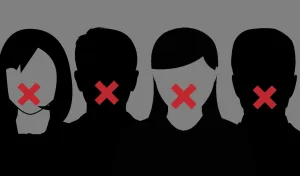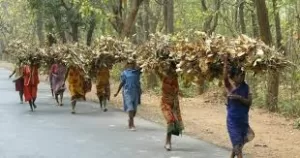A number of leading lawyers, representing state governments, have rushed to the Supreme Court to demand the removal of the 50% cap on reservations, or quotas. The central government supports the move, and holds that the grant of reservations to the Maratha community by the Maharashtra government is valid. There seems to be a general consensus that the ceiling on reservations laid down by the Supreme Court in the 1992 Indira Sawhney case should be dispensed with.
Law, argued the legal counsel for the Jharkhand government, Kapil Sibal, is not static. If state governments can provide people with schools and teachers by breaching the ceiling it should be done. “Law… should change to fulfil the needs and requirements of changing times.”
The demand to extend reservations to other sections of the backward castes conceivably mixes up three, if not more, issues that have some bearing on the concept of redistributive justice. One, reservation policies are not a job-guarantee scheme. Nor are they a minimal income scheme in the making. The demand for the expansion of the constituency of reservations replaces distributive justice with remedial justice, which was originally designed for the doubly disadvantaged.
Two, reservation policies do not give us any assurance whatsoever that schools and processes of teaching and learning will improve, only and only if, these schemes are extended to ‘this’ or ‘that’ group. Report after report tells us of the failure of various state governments to provide well-functioning schools, and ensure competent and inspired teaching that can touch the imagination and energies of children. Will the expansion of reservations enable realisation of the fundamental right to education in a meaningful sense? Perhaps not, for the rot runs deep.
In 2001, the Supreme Court had scolded the Vajpayee government for allowing people to starve in the middle of overflowing food stocks, appointed food commissioners to supervise distribution of food grains, and institutionalised mid-day meals in schools. In a few years, court support for civil society mobilisation for the right to food, and the right to work, resulted in the enactment of two significant rights. It is time the highest court in the land, that had upheld the right to primary education, does something similar for the educational system.
It will have to, because the public educational system, from primary schools to universities is breaking down. The system is denied resources, subjected to political bullying by random and ignorant cadre of the ruling group, forced to adopt academic curricula that suits the agenda of whichever government is in power, saddled with incompetent appointments, compelled to prioritise coarse political formulations over knowledge, and seen as a fertile field for the exercise of political patronage.
What, we may ask, is the point of expanding the writ of reservations if schools, colleges and universities have been forced into this abysmal condition? Education has to enlighten the mind, expand sensibilities, deepen insights into the predicament of the human condition, spark off sympathy with fellow citizens, and encourage reflection on how citizens can lead a life that is truly human. Will single-minded focus on expanding the constituency of reservations ensure that schools are built, make available classrooms, blackboards, libraries and laboratories, and assure both the quality of teaching and the experience of learning?
Is, perchance, the demand for lifting the cap on quotas a ‘soft option for governments’? Perhaps because governments refuse to grasp that their paramount obligation is to the well-being of the citizens, and that the discharge of this responsibility requires hard work.
Three, in all this rush for expanding the beneficiaries of reservations, governments conveniently forgets that the policy was designed and implemented for a particular reason – the prevalence of an obnoxious caste system. In India a rigid, hierarchical and exclusionary caste system has, for many centuries, subjected Dalits to three-fold injustice: extreme economic deprivation, institutionalised humiliation, and lack of voice or participation. These three aspects of rank injustice flow from a principle that is completely arbitrary and thus indefensible: birth into a caste that has been typed as the lowly and as outside the caste system. The practice violates the basic creed of justice, that every citizen should share in equal measure the burdens and the benefits of society.
Discriminatory practices were consolidated over time, even though protest stalked the practice of “untouchability” much as the vengeful Goddess Nemesis single-mindedly pursues hubris. From the sixth to the sixteenth century, the Bhakti movement of devotional mystics launched a powerful and concerted attack on the dreadful practices of pollution and purity. Till today the poetry of the sixteenth century weaver Kabir, who exposed the hollowness and the hypocrisy of organised religion and its gatekeeper’s is remembered, recited and sung. ‘O Pandit…Tell me, whence did defilement spring? How came you to discern defilement?…/Defilement you eat, defilement you drink, defilement created the world/Kabir says, They are free from defilement, who keep no company with Maya.’
In adopting a wide-ranging programme of affirmative action for the Scheduled Castes and Tribes, India recognised the enormity of historical injustice that had been heaped upon our own people. We also recognised that those who had benefitted from history owe those who lost out, and lost out badly. This is the minimum we owe our fellow citizens in a democratic political community. Double disadvantage justifies the departure from principles of formal equality, as well as the move towards substantive equality. It is well-nigh impossible to justify reservations for groups merely because schools do not function and teachers do not teach. Reservations can only be justified in terms of historical injustice and double disadvantage.
Extension of reservations
A closer look at the demand for the extension of reservations might reveal other causes that underpin political claims. Unemployment/ under-employment in India is at an all-time high. The farmer’s protest movement sends a powerful message, that the country has been in the throes of an agrarian crisis for many decades now. In many parts of India, agriculture has been rendered unprofitable, and prices for commodities as well as rural wages have dramatically declined. A number of studies have shown that children of the farming community prefer to leave the village and search for professional jobs. Given the scarcity of jobs in urban areas, and the difficulty of getting admission into prestigious educational institutions, huge numbers of young people are under-educated and unemployed.
Can reservations show a way out of this structural crisis? Surely not. The crisis can only be tackled if the government deploys some imagination, a great deal of courage and tremendous determination to secure the interests of the least advantaged. Instead ruling elites opt for reservations. Reservations have become a soft option, but presented as the panacea for all ills that beset India. This is the ultimate political seduction. The justification of the measure is paper-thin, the appeal of the measure is enormous.
This becomes clear in the case of the Maratha agitation in Maharashtra. In the 1990s, leaders of the community began to demand reservations in education and employment. Repeated bouts of discontent culminated in a major protest movement in August 2018. On 10 August 2018, a correspondent from the Times of India interviewed Virendra Shashikant Pawar, one of the leaders of the Maratha Kranti Morcha. The latter admitted that the movement was asking for an amendment to the law that protects the Dalit community [in effect weakening protection], and for reservations in educational institutions and government employment.
The demand was motivated by the recognition that children do not get admission into their preferred colleges and higher education institutions. But children who belong to the non-Maratha community, he complained, have managed to secure both education and employment. Either include us in the Other Backward Caste category, said Pawar, or abolish all reservations. Notably the demand was not for redistributive justice – land redistribution, creation of jobs, remunerative prices or minimum income, but for remedial justice that had been designed for doubly disadvantaged communities in India.
Redistributive and remedial justice
There is a distinctive difference between projects of distributive justice that aim to reorganise ownership of economic resources equitably, and remedial justice that recognises historical injustice and ensures benefits to a doubly disadvantaged community. Redistributive justice comprehends that resources are unjustly monopolised by a small elite. The project sets out to ensure equitable redistribution through a variety of means, for example, progressive taxation. In India the project of distributive justice has collapsed. Levels of inequality remain frighteningly high.
On the opening day of the World Economic Forum in Davos in January 2021, the Inequality Virus Report brought out by Oxfam detailed that during the pandemic the wealth of India’s billionaires had increased by 35% to Rs 3 trillion. The rise in the fortunes of the top 100 billionaires in enough to give each one of the 138 million poorest Indians a cheque for Rs 94,045. The wealth of the top eleven billionaires garnered during the pandemic could easily sustain MGNREGA for the next ten years. The increase in the wealth of the richest man in India can keep 40 crore informal workers out of poverty for some months.
The phenomenal growth in wealth took place at a time the poor battled joblessness, starvation and death. Statistics on extreme poverty and extreme wealth in the country should make for discomfort. Whatever happened to the promises coded in Article 14 that makes equality a fundamental right? Whatever happened to redistributive justice that is a necessary precondition of equality? Equality, it appears, has been replaced by reservations, and redistributive justice by remedial justice that compensates for historical wrongs. Formal equality (equality before the law and equal treatment by the law) continuous to be grievously compromised by extreme inequality in the social and the economic sphere.
Why is equality a value that every society should strive for? This question can perhaps be addressed only if we ask a prior question – equality for what? The answer is fairly obvious. Citizens should have access to primary goods – education, health, income – not only to survive, but because this is the only way they can participate in social, political, cultural and political transactions from a plane of (admittedly rough) equality.
A publicly funded educational and health system is an important precondition for enabling people to do so. Above all, a universal right to work will ensure that citizens are not forced to beg for what is rightfully theirs. This is the first stage of rectifying inequality. Once each citizen has been provided with primary goods, the special needs of the doubly disadvantaged have to be considered. Remedial justice follows redistributive justice, it cannot replace the latter. If it does, the malaise remains untouched.
In India, reservations are presented as a magical wand that will wave off all deprivation and distress. This has happened because there is absolutely no debate, no discussion and no political consensus on the need for equalising life chances, or of ensuring that a child does not suffer in her life because she has been born into a poor family. The demand for reservations is conducted in a moral and political vacuum.
The political class refuses to shape, foster or participate in a political consensus that each citizen has a right to equality. It gives us reservations or token remedies for a serious malaise. Little wonder that the political defence of such policies is wafer thin. The link between redistributive justice for all, and remedial justice for the doubly disadvantaged is snapped. To restore the link, the policy of quotas has to be taken seriously and employed sparingly.
(Neera Chandhoke was a professor of political science at Delhi University. Courtesy: Wire.in.)




